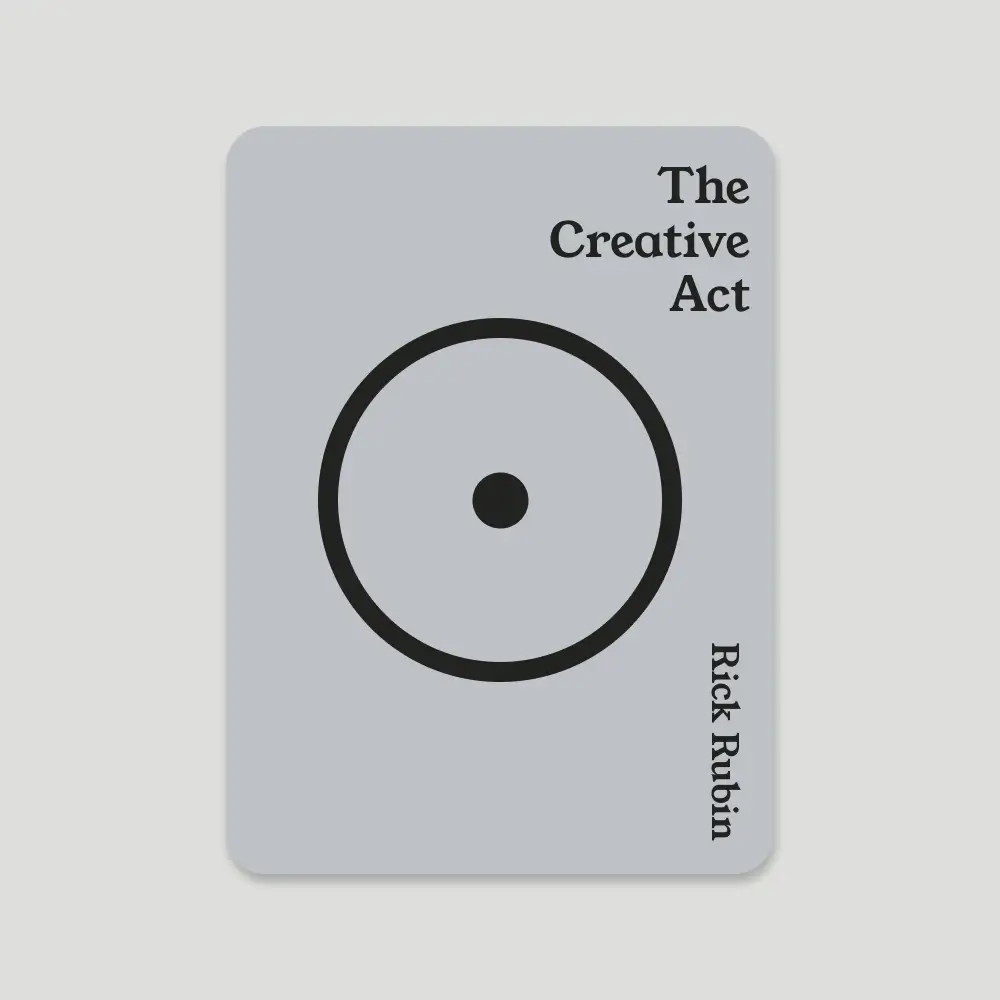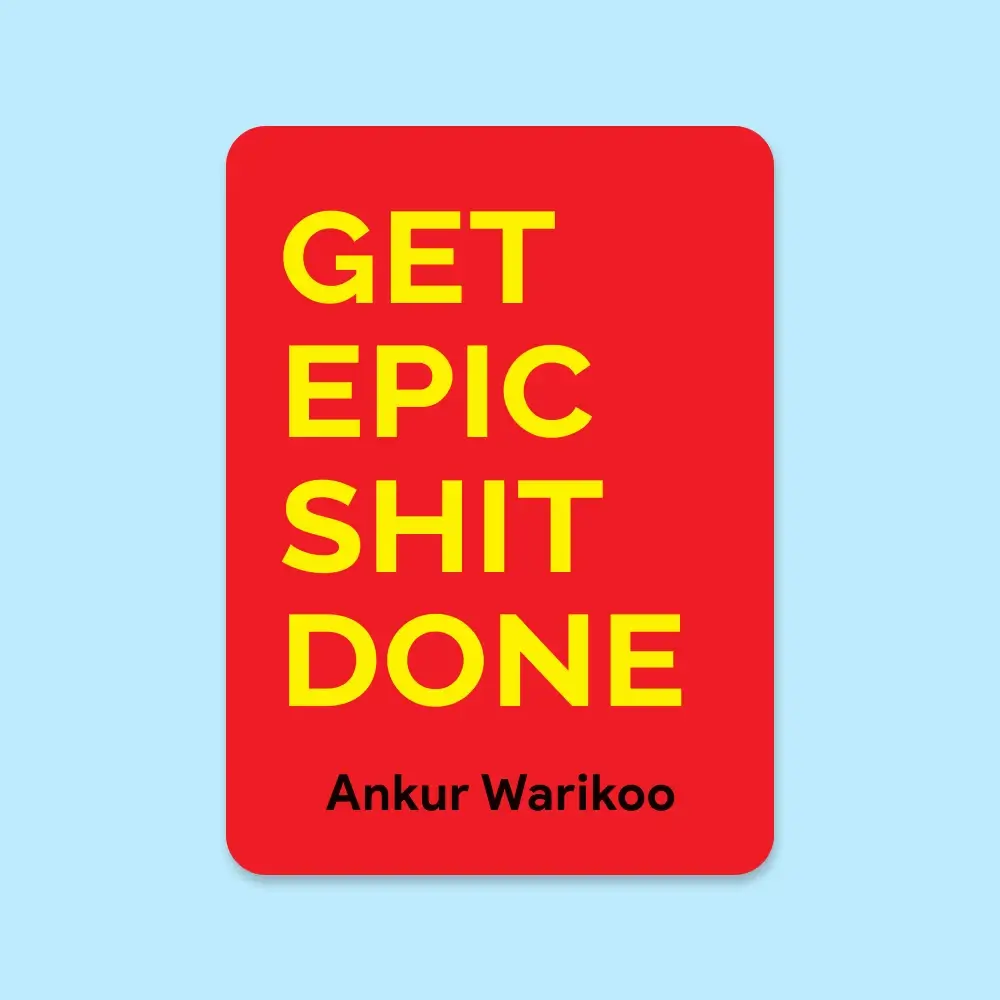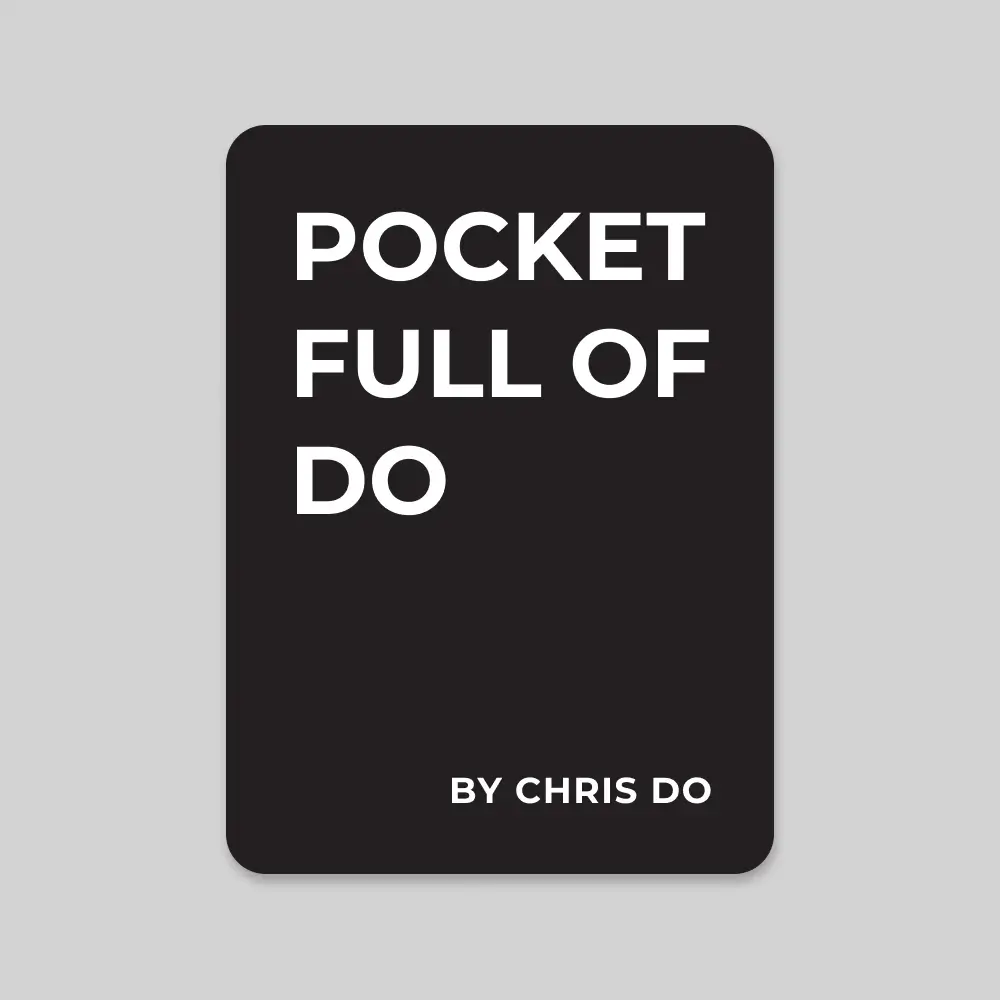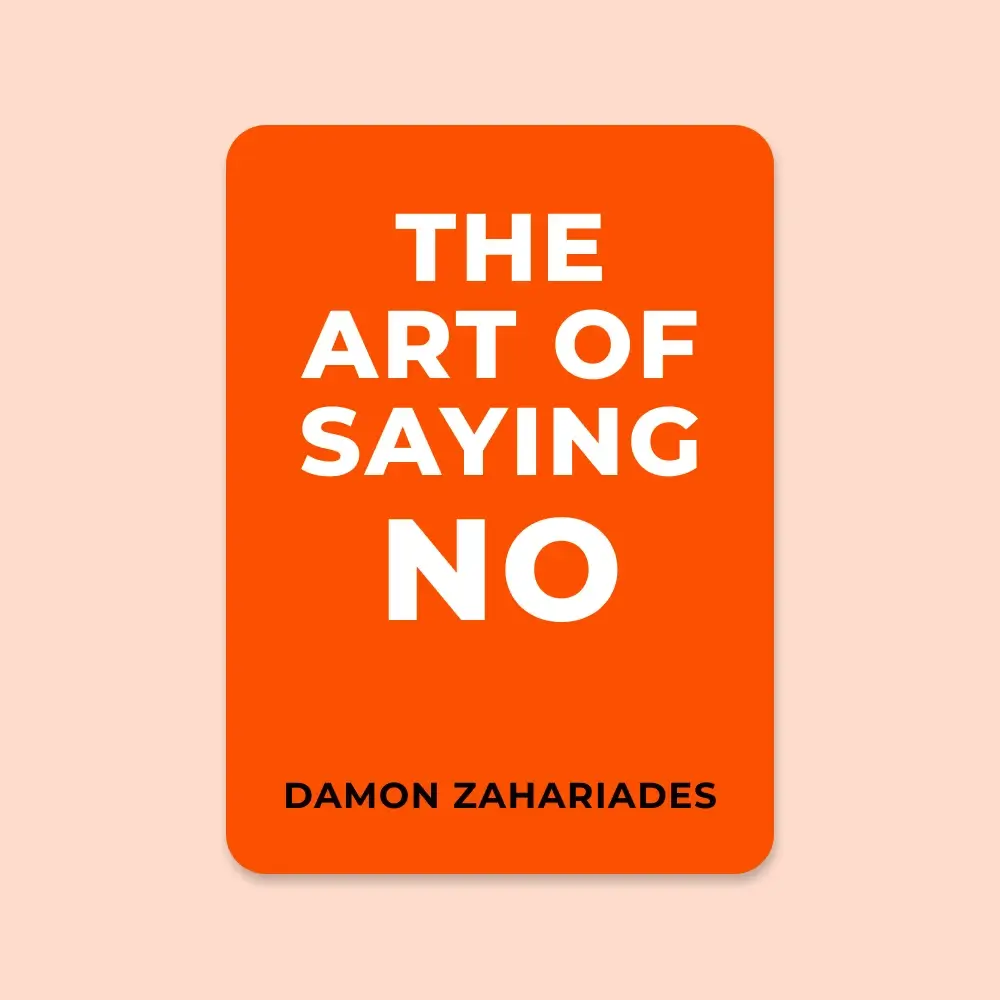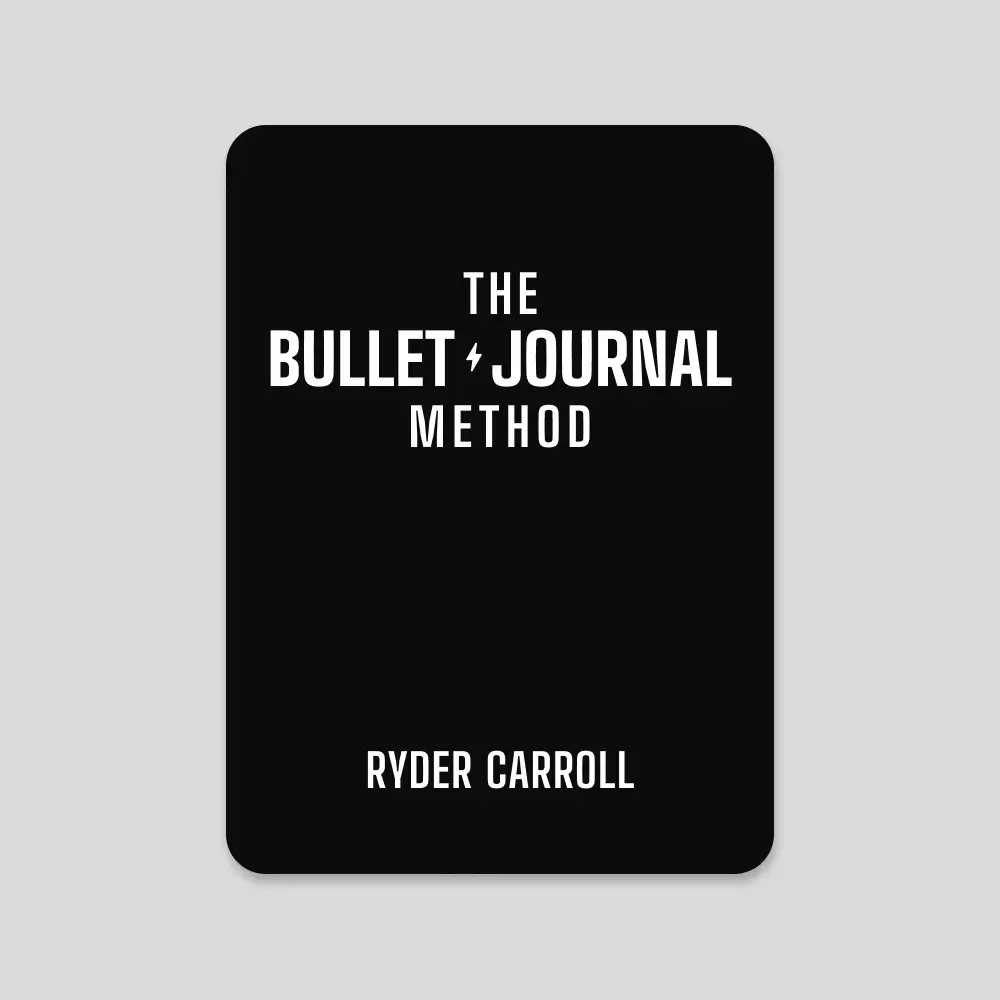
The Bullet Journal Method
Let us postpone nothing. Let us balance life’s account every day. . . . One who daily puts the finishing touches to his life is never in want of time. —SENECA , Moral Letters to Lucilius
- The Bullet Journal Method is for anyone struggling to find their place in the digital age. It will help you get organized by providing simple tools and techniques that can inject clarity, direction, and focus into your days.
Life had gotten too busy. It seemed as if my existence had become just one long to-do list. I had forgotten about my dreams, my goals, my what-ifs, my “what if I could’s.” —AMY HAINES
- The Bullet Journal will help you declutter your packed mind so you can finally examine your thoughts from an objective distance.
Intentional living is the art of making our own choices before others’ choices make us. —RICHIE NORTON
Have nothing in your homes that you do not know to be useful or believe to be beautiful. —WILLIAM MORRIS
-
Being busy, however, is not the same thing as being productive.
-
We need to reduce the number of decisions we burden ourselves with so we can focus on what matters.
-
Any item that doesn’t pass this test is a distraction.
Journal writing is a voyage to the interior. —CHRISTINA BALDWIN
-
Our notebook serves as a mental sanctuary where we are free to think, reflect, process, and focus.
-
The power of the Bullet Journal is that it becomes whatever you need it to be, no matter what season of life you’re in.
The palest ink is better than the best memory. —CHINESE PROVERB
-
When we put pen to paper, we’re not just turning on the lights; we’re also turning up the heat. Writing by hand helps us think and feel simultaneously.
-
Rapid Logging will help you efficiently capture your life as it happens so that you may begin to study it.
-
Often all it takes to live intentionally is to pause before you proceed.
-
The Index provides an easy way to find your thoughts days, months, or years after entrusting them to your notebook.
-
Use your Index to help you stay focused on the things that are worthy of your yes.
There is nothing quite so useless as doing with great efficiency something that should not be done at all. —PETER DRUCKER
- Productivity is about getting more done by working on fewer things.
Life is what happens to you while you’re busy making other plans. —ALLEN SAUNDERS
- Being busy doesn’t necessarily mean we’re being productive.
Many painters are afraid of the blank canvas, but the blank canvas is afraid of the painter who dares and who has broken the spell of “you can’t” once and for all. —VINCENT VAN GOGH
Know thyself. —SOCRATES
-
Reflection helps identify what nourishes you so you can make better decisions as you seed the next season of your life.
-
Reflection is the nursery of intentionality. It grants us the protected mental environment we need to reclaim some much-needed perspective and begin to ask why . Through Reflection, we cultivate the habit of checking in with ourselves to examine our progress, our responsibilities, our circumstances, and our state of mind. It helps us see if we’re solving the right problems, answering the right questions.
Eyes see only light, ears hear only sound, but a listening heart perceives meaning. —DAVID STEINDL -RAST
-
If happiness is the result of our actions, then we need to stop asking ourselves how to be happy . Rather, we should be asking ourselves how to be .
-
Thanks to our ability to rapidly adapt, even the most pleasurable experience or purchase quickly becomes the boring new normal. Soon we’re itching for another quick fix of pleasure. No longer satisfied with what we already have, we treat our withdrawal pains by incrementally upping the dosage. More shoes, more booze, more sex, more food, more “likes,” just more . This phenomenon is known as hedonic adaptation.
-
Your senses will witness what “shines forth,” that which holds the promise of meaning.
We can do no great things; only small things with great love. —MOTHER TERESA
-
Goals give us the opportunity to define what we want.
-
Breaking down long-term goals into smaller, self-contained goals can turn what seems like a marathon into a series of Sprints. Sprints cover the same ground, just in shorter, more manageable intervals. This technique is a slightly adapted variation of a similar approach deployed in agile software development, but it can be powerful for tackling any type of goal.
-
The point is to safely indulge your curiosity and try things on for size, without wasting time.
-
The longer a goal takes to accomplish, the more it taxes your motivation. When motivation runs dry, goals tend to crumble. Sprint projects will help you reduce the load so you can enjoy the satisfaction of seeing regular progress.
-
Change is critical to productivity and growth—personal, professional, or otherwise. It can be a powerful way to alter our circumstances, but it can backfire. Large changes trigger our fear response. The more afraid we are, the more we need to calm ourselves.
-
By bringing our attention to the little things, we can effect change while we avoid overwhelm. All we need to do is solve one small problem at a time. Each solution builds on those that came before it, and therefore these small steps add up quickly, effecting massive change over time.
In the end it’s not the years in your life that count, it’s life in your years. —ABRAHAM LINCOLN
-
The hard truth is that we can’t “make time,” we can only “take time.”
-
The quality of our time is determined by our ability to be present.
-
Time boxing quarantines an activity to an allotted slot of time. It’s designed to bring your full attention to something by only allowing you to focus on it for a predefined period of time.
-
Time boxing adds two key motivational ingredients to a Task you’ve been putting off: structure and urgency.
Life is so subtle that sometimes you barely notice yourself walking through the doors you once prayed would open. —BRIANNA WIEST
- Having a gratitude practice has been shown to improve relationships, physical and mental health, empathy, self-esteem, lowering aggression—the list goes on.
God, grant me the serenity to accept the things I cannot change; courage to change the things I can; and wisdom to know the difference. —REINHOLD NIEBUHR
-
We can’t control the world around us, nor the people in it. It’s our futile resistance to this truth that can leave us frustrated, devastated, or at a total lost.
-
We can control how we respond to what happens to us.
As a man changes his own nature, so does the attitude of the world change towards him. —MAHATMA GANDHI
- Self-compassion can start by asking yourself a simple question: What would I tell a friend in this situation?
If you know the why, you can live any how. —FRIEDRICH NIETZSCHE
What stands in the way becomes the way. —MARCUS AURELIUS
I shall either find a way or make one. —HANNIBAL BARCA
There is a crack in everything, that’s how the light gets in. —LEONARD COHEN
-
No, tests are approximations at best. There are plenty of people who test well yet perform poorly. There are even more who test poorly but perform well.
-
By celebrating transience, the universal changing nature of all things, wabi-sabi champions a forgiving path with limitless opportunities to progress.
-
By accepting that we can’t be perfect and that we will fail, we can get back to work.
-
Every action is a step up from where you were. It doesn’t matter how small the steps are, or if you stumble along the way. What matters is that you continue to step up.
Content precedes design. Design in the absence of content is not design, it’s decoration. —JEFFREY ZELDMAN
-
A Custom Collection is designed to serve a specific need.
-
If there’s nothing to be learned from the information in a Collection, it provides little value, and chances are you’ll lack the incentive needed to maintain it. Don’t waste your time tending Collections that won’t add value to your life.
-
In other words, understanding why you feel compelled to do something will help you better define how to do something.
A designer knows he has achieved perfection not when there is nothing left to add, but when there is nothing left to take away. —ANTOINE DE SAINT -EXUPÉRY
-
Collections should always favor function over form. It’s how well a Collection helps you execute its underlying goal that matters.
-
Your Collections should be as helpful to you in retrospect as they are in real time.
If you fail to plan, you are planning to fail! —BENJAMIN FRANKLIN
You can’t manage what you can’t measure. —PETER DRUCKER
-
It’s not about how your journal looks; it’s about how it makes you feel and how effective it is.
-
The longer you use it, the more helpful it should become.
